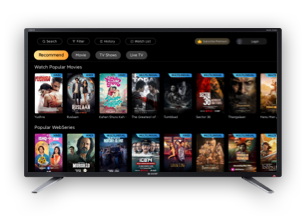Barry Gibb
If you were to try and summarize Barry Gibb's forty-five year career in the music industry in a single phrase you would probably come up with something such as "versatile". Barry Gibb continues to remain an important, relevant figure in the music industry due to his willingness to adapt his music, his style and his image into whatever musical styling is at the fore. What makes the story of Barry Gibb so unique is that he has had a successful musical career of over forty years, continually restyling both the image and the music of the Bee Gees in order to remain relevant to the contemporary era. Barry has gone from being the front man of the soft rock/pop styling of the Bee Gees in the 1960s, to bringing the disco scene to the fore in the 70s, becoming a crooner in the 80s and reinventing his career yet again in the 1990s, as the Bee Gees enjoyed yet another reinvigoration, as their new albums and hit "One Night Only" tour proved that the music of the Bee Gees was timeless. Lasting over forty years, the Bee Gees are one of the longest running musical acts of all-time, and Barry's longevity can be attributed in part to the timelessness of his songs about unrequited love, soul-mates, people finding courage in times of dismay and above all, celebrating the short time we have on this earth.
Barry's story begins on the 1st of September 1946, where he was born the second of five children to parents Barbara and Hugh Gibb. In the early 1960s Barry, and his twin brothers, Maurice and Robin, formed pop group The Bee Gees, named in tribute to two people who helped launch their career, racetrack promoter Bill Goode and a DJ named Bill Gates. It was later changed to an acronym for the Brothers Gibb.
Barry and his family emigrated to Australia shortly after the birth of youngest sibling Andy, and the Gibbs performed anywhere and everywhere they could, in order to raise some pocket money. After securing a spot performing on local television shows, they were eventually signed for a record label in 1963. From the outset Barry was the primary creative force behind the music of the Bee Gees, penning the majority of their hit songs in the 1960s as well as countless other songs for other artists. In the 1970s the was a drastic change to the dynamics of the music industry, which saw singers from previous eras struggle to remain relevant. Barry helped pave the way for the Bee Gees most memorable decade, as he came up with the idea of performing in their now trademark falsetto's, as well as helping to launch the career of his youngest sibling, Andy Gibb. Barry became a mentor to the young Andy, guiding him in his initial foray into the music industry, by penning the majority of his hit singles.
The 1980s saw Barry struggle to remain relevant to the music industry, as the onset of the electro-funk styling of bands such as INXS saw the Bee Gees labeled as "uncool". Barry refused to be swayed by the Bee Gees dwindling record sales, and continued to record as both part of the Bee Gees, while also making his mark as a songwriter for other artists, penning memorable hit songs for artists as diverse as Kenny Rogers, Diana Ross and Olivia Newton-John. In 1988 Barry was heartbroken when brother Andy Gibb succumbed to years of substance abuse, and died at the age of 30. Just months before in was decided that Andy would be joining the Bee Gees as the fourth member, and Andy's death took a toll on Barry for the remainder of that decade, and his musical creativity diminished.
While Barry continues to record in the early 90s, it wasn't until 1997 that the Bee Gees returned to the fore, with the critically hailed "Still Waters" album. In late 1997 Barry, Robin and Maurice performed the legendary "One Night Only" concert at the MGM Grand in Las Vegas, Nevada, United States, and the DVD recording of the concert has gone on to become the highest selling music DVD in Australian history, remaining on the ARIA DVD chart for over ten years.
In 2003 Maurice Gibb died of a cardiac arrest because of a congenital birth defect, bringing to a close the forty year career of The Bee Gees. However, Barry continues to remain in the public eye, as he has become more politically active, as he has generated controversy for his staunch criticism of the Schappelle Corby trial and lack of copyright protection for sound recordings in the UK. Few singers can boast having a number one record in five consecutive decades as Barry can, and with artists such as Faith No More, Wyclef Jean and Ronan Keating covering Barry's songs, Barry's timeless lyrics continue to reach out to a new generation of listeners.



